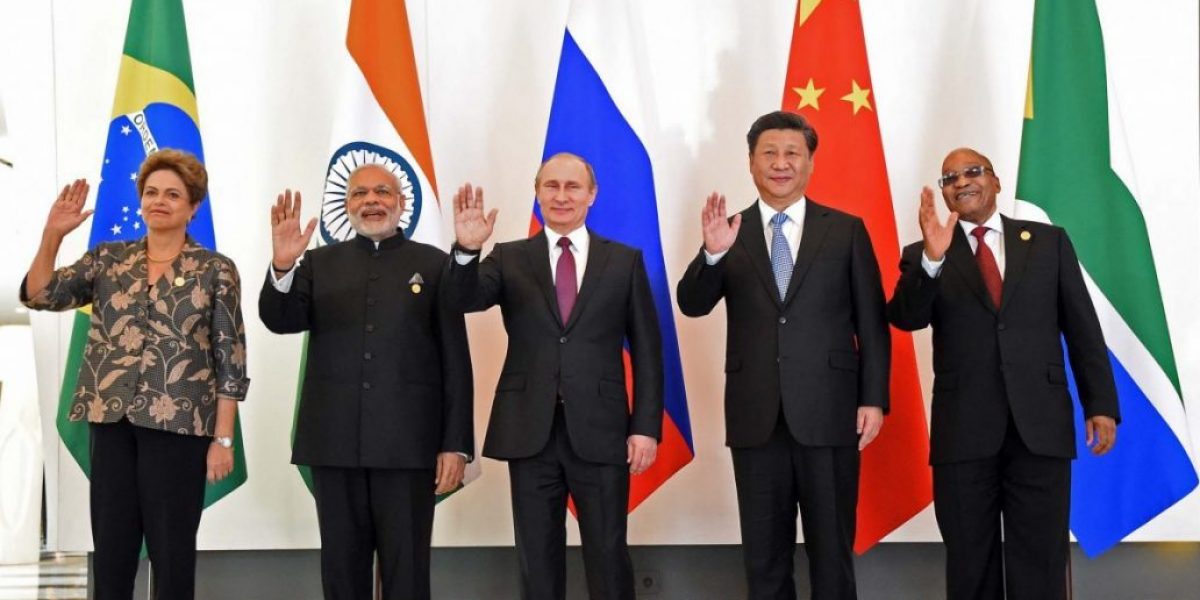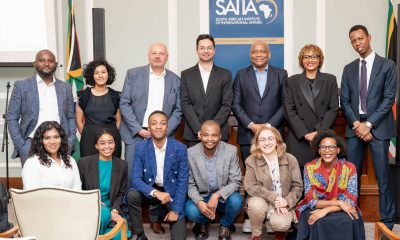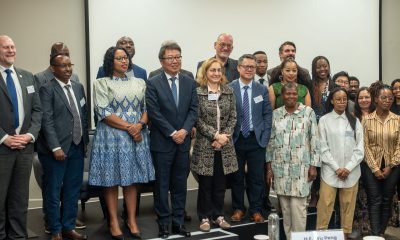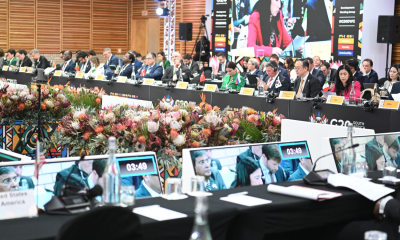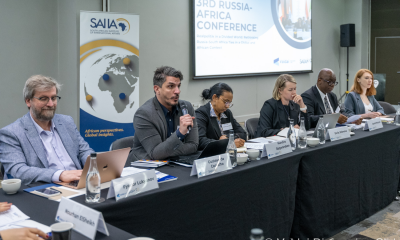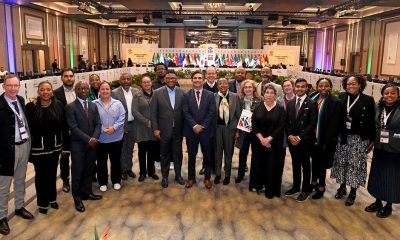A review of some of the leading publications showed the main stories were around the issue of South Africa’s membership, currency issues, the World Bank presidency, the proposed BRICS development bank as well as the issue of Iran and its nuclear weapons programme. The following is a brief synopsis of the media reports.
South Africa in the BRICS
The issue of South Africa and whether it was deserving of its membership of the BRICS were raised (Mail and Guardian), and the article was mainly based in the views of Jim O’Neill, who has been unapologetic in his view that South Africa should not have been invited to become a member. However, reading this article in the context of other articles (Mail and Guardian, Business Day), the question put across to the public by the media was really about what the BRICS is and what it stands for. The article based on the O’Neill interview looked at BRICS from the perspective of a grouping based on economic growth and nothing else. Interestingly, there was a follow up article after the Summit, by O’Neill himself in which he sought to absolve himself of the view that he is anti-South Africa in the BRICS and emphasised that South Africa can justify its membership of the BRICS if it succeeds in leading the African continent to its own economic standards and improves trade and infrastructure growth as well as domestic productivity (Mail and Guardian).
Other publications also stressed that South Africa must play its role by justifying it position by its action and by its presence in the ‘BRICS club’ by help leading change (Times Live and City Press). Other media, conscious of this unending debate, touched on the touted benefits of South Africa’s membership of the BRICS; mainly that it makes the BRICS group representative, the global political spin-offs for South Africa as well as the role that South Africa is understood to play as a gateway into Africa (City Press, Business Day). The increased trade between South Africa and the BRICS as well as strengthened investment ties were also identified as some of the benefits (Business Day, Sunday Independent). In a post-summit article, Business Report, identified South Africa as the best ally for the BRICS given it economic advancement compared to other countries on the continent but cautioned that South Africa should not be complacent in its current position, citing the fast growing economies of Angola, Nigeria and Kenya as growing threats to the position South Africa currently enjoys on the continent.
Implicit in the article was the idea of the BRICS group as a dynamic and constantly evolving grouping, which issue was also discussed by other media in the context of whether South Africa deserves to be in the BRICS. Nevertheless, it seemed the media was generally agreed that the BRICS is a political grouping, a lobbying group that reflects the shifting balance of power in the global political economy and it acts as a reminder that the G7 and western powers need to make room for these emerging powers. Business Day emphasised that the BRICS members also share ideals, problems and economic context that seem totally absent from the agenda of the west. What can be drawn from the above is that the question of South Africa’s membership of the BRICS is fast becoming moot and it is now more about how best to leverage South Africa’s BRICS membership.
Post-summit, however, Business Day carried a story on the perceived importance of the BRICS grouping within the individual countries and from a business perspective. It emerged that South African business accords BRICS a lot of significance as they see the development and job creation potential it holds. This is especially if BRICS can help resolve the trade issues that South African business has with some of the individual BRICS members. However, business still wants a bit more clarity on what the South African government seeks to achieve through its BRICS membership.
The question of Iran
Another issue that was topical was that of the question of sanctions against Iran (Engineering News). Without putting fine print to it, the article conveyed the fact that the BRICS have not yet garnered enough political power to be able to resist US directives. While all the BRICS countries were reported to be resolute in their decision that they would not be dictated to by the sanctions the US has taken out against Iran, some of them were reported to be actively reducing their imports of Iranian oil. Press reports after the summit reported that the BRICS recognised Iran’s nuclear rights (City Press), sending very conflicting signals given previous reports on steps being taken by BRICS countries to reduce imports of Iranian oil. For South Africa in particular, the picture painted was one of confusion on the issue, particularly in light of a statement by a senior official that South Africa had suspended all imports of oil from Iran, which statement was later retracted by officials in the foreign ministry (Fin24). Such media reports do solidify the opinion by some that South Africa does not have any strategy vis-à-vis the BRICS and is not clear on its interests. As such, the country will always be more reactive than pro-active in such groupings and will never set the agenda.
The currency issue and BRICS development bank
The currency issue was raised in the context of the BRICS countries intending to unseat the US dollar as the trade currency and rather promote the internationalisation of the Renminbi as a trade currency (City Press) as well as in the context of currency manipulations and unfair monetary policies by other countries (Business Day). The article carried an open admission by Brazil that China is part of the problem when it comes to currency manipulations and Brazil was reported as intending to push for the BRICS summit communique to denounce such unfair monetary policies. At the same time, a different publication reported that Brazil intended to manipulate its currency as it did not want its manufacturing sector to lose out in the ‘global currency war’ (City Press). After the summit, the media reported on the BRICS declaration that called for developed countries to desist from implementing monetary and other policies that have destabilising effects on trade (City Press). Interestingly, as the same publication that had reported on Brazil’s intention to lobby China to stop with its currency manipulation, nothing was made of the failure of the Summit declaration to mention China by name or at least encourage China to revisit its monetary policy.
One issue that was the subject of much public speculation prior to the Summit was that of the proposed BRICS development bank. This was indicated to be the top agenda for the Summit (City Press, Business Day, and Engineering News). Reporting on stakeholders’ perspectives on the proposed BRICS development bank, it emerged that while the bank could serve a very useful tool in making the BRICS more relevant for business, questions were abound as to its exact role and one opinion was that the relevance of BRICS should not be made contingent to the establishment of the development bank (Business Day). Fin24 reported that the outgoing World Bank president has given his blessing to the proposal to establish the development bank, on the premise that it would be nothing more than a financing vehicle, despite it being seen in some circles as a potential counterweight to the World Bank. In essence, the media revealed a general political support for the establishment of the bank.
World Bank Presidency
A strong focus was placed on the BRICS member’s collective call for the end to the tacit agreement between the US and Europe that the head of World Bank be American and that of the IMF a European. To this end, it was reported that the BRICS countries intended to push for a candidate from an emerging economy. After the summit, City Press reported on the push by the BRICS countries for developed countries to implement IMF quota reforms before the annual spring meetings in October. Clearly angling for an increased influence in the IMF, the BRICS countries stressed that such reforms were necessary to ensure the continued legitimacy and effectiveness of the fund.
Other Issues:
In City Press it was reported that the BRICS were to launch benchmark equity index derivatives, which would allow BRICS investors to trade in each other’s markets without currency risk. It was also reported that BRICS will offer each other preferential loans and infrastructure assistance, a lower cost of trading and put up infrastructure in emerging markets. The message being relayed was that that developing countries, under the leadership of the BRICS, are carving out an alternative route to development and infrastructure finance.
Trade issues were also raised, less in the context of barriers to trade among the BRICS countries (Business Day) and more in the context of a unified BRICS position at both the WTO and in the G20, with the BRICS trade ministers reportedly set to fight to prevent core trade issues from being decided at the G20 to the detriment of the multilateral system (Independent Online).
Conclusion
Overall the BRICS Summit received significant media attention but only by a select number of publications, mainly City Press and Business Day. The reports did not focus much on the political and economic differences among the BRICS members, with the notable exclusion of South Africa, which was singled out for analysis of its membership of the BRICS. This can be explained by the apparent lack of strategy by South Africa when it comes to the BRICS, especially because these are local publications. Not many of the articles were analytical and most were quite superficial, focused on reporting on utterings by presidents, ministers or other experts without seeking to breakdown the issues and the dynamics. Overall, however, it seems the general message was that the BRICS is growing to be a force to reckon with and is working towards harnessing its power, particularly in relation to the developed countries.

